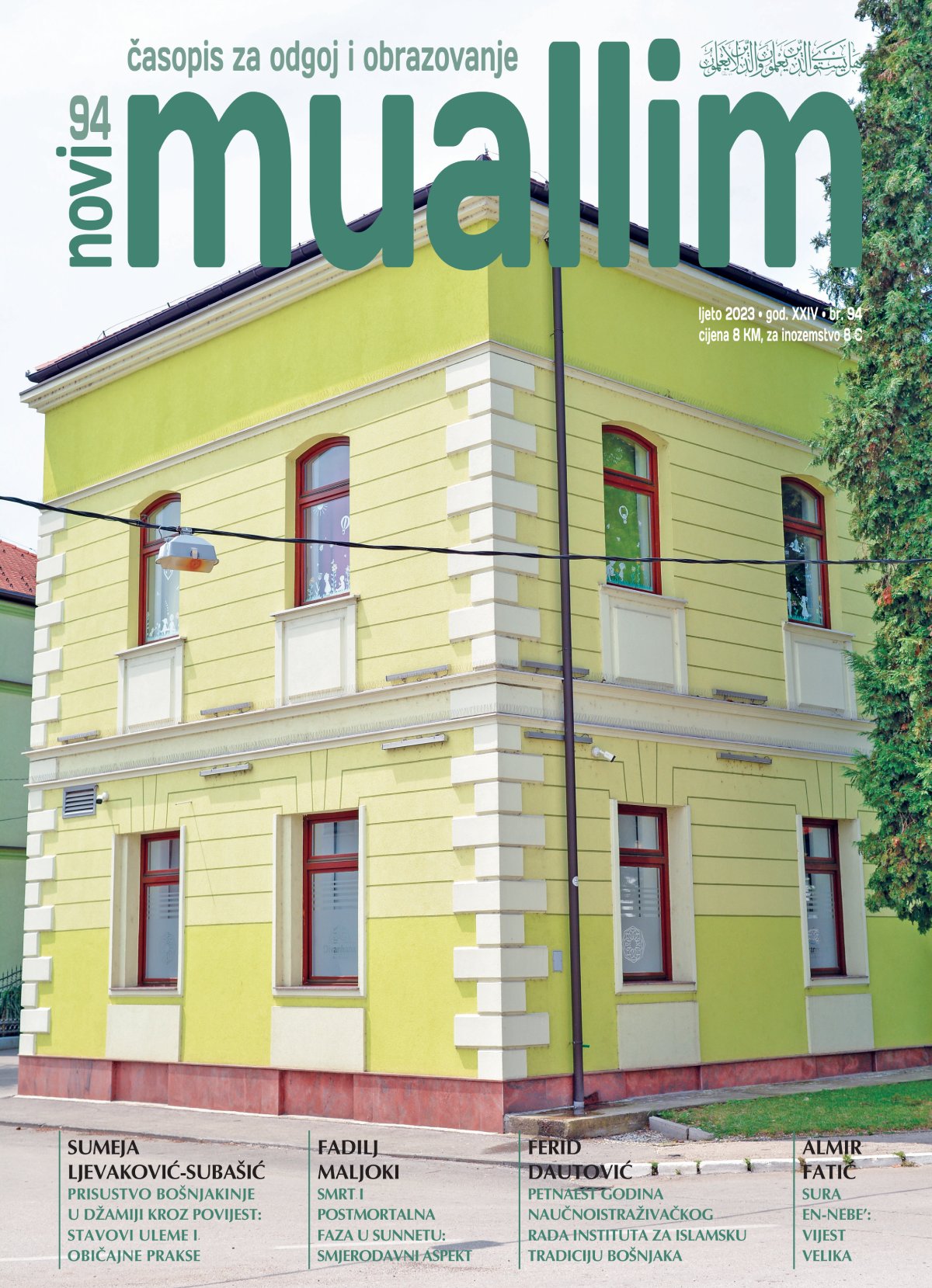Messenger’s s.w.s. excellence in managing human resources presented through a case of the Bettle of Bedr
DOI:
https://doi.org/10.26340/muallim.v24i94.2028Keywords:
God’s Messenger, the Battle of Badr, leadership, excellence, management in crises, human resourcesAbstract
UDK: 28-42
28-9
The modern world we live in shows a growing tendency in profiling social phenomena and providing scientific explanations for their emergence. This tendency is directed at finding a discipline and the scientific field for almost all the possible challenges in life and all human relations which determines it, analyses it empirically, and provides a framework for its development. In this sense, managing and directing people, which in the past could have been viewed as a form of one’s intuition, as one’s inborn or acquired skill for working with people, is today established on the bases of clearly pre-set parameters and standards which need to be achieved in order to establish a functional process of management. The Western world has developed significantly in this regard, whereas for Muslims, speaking in a broader social context, this idea is relatively unknown, and the present condition of Umma is in such a state wherein any systematic organization of human potentials is not likely to evolve in the perceivable future. The author here tries to stress that religious teachings can not be the reason for such a state, because the Messenger s.w.s. himself has set an example of good management of human resources, especially in some critical circumstances. He thus endowed Muslims with a normative paradigm in this regard. Thus he here discusses the leadership competencies of the Messenger s.w.s. through the accounts of a battle of crucial significance, i.e. the Battle of Badr.
Downloads
Published
How to Cite
Issue
Section
License

This work is licensed under a Creative Commons Attribution 4.0 International License.
Naknada:
a. Časopis ne naplaćuje naknadu za obradu članaka (APC) i naknadu za podnošenje članaka.
Autori koji objavljuju u ovom časopisu pristaju na sljedeće uvijete:
- Autori zadržavaju autorska prava i pružaju časopisu pravo prvog objavljivanja, pri čemu će rad jednu godinu po objavljivanju biti podložan licenci Creative Commons imenovanje koja omogućuje drugima da dijele rad uz uvijet navođenja autorstva i izvornog objavljivanja u ovom časopisu.
- Autori mogu izraditi zasebne, ugovorne aranžmane za ne-ekskluzivnu distribuciju rada objavljenog u časopisu (npr. postavljanje u institucionalni repozitorij ili objavljivanje u knjizi), uz navođenje da je rad izvorno objavljen u ovom časopisu.


